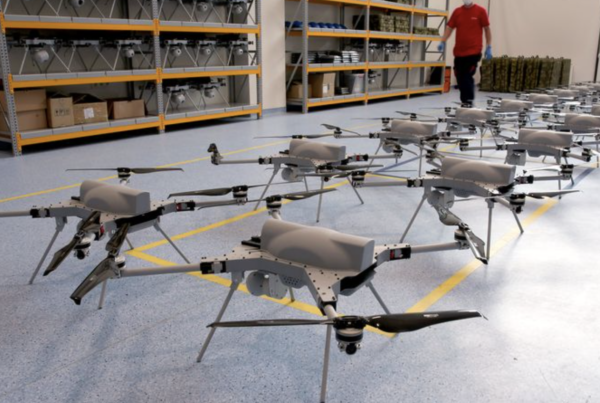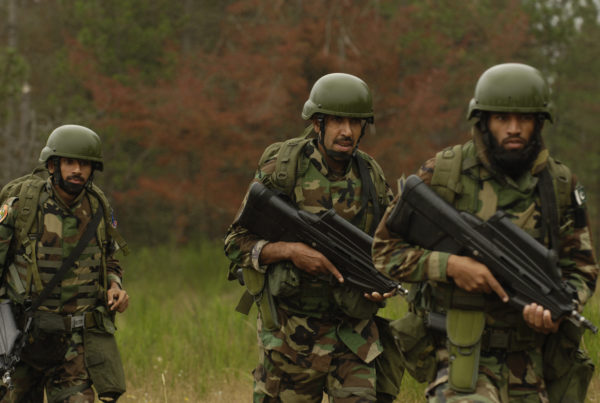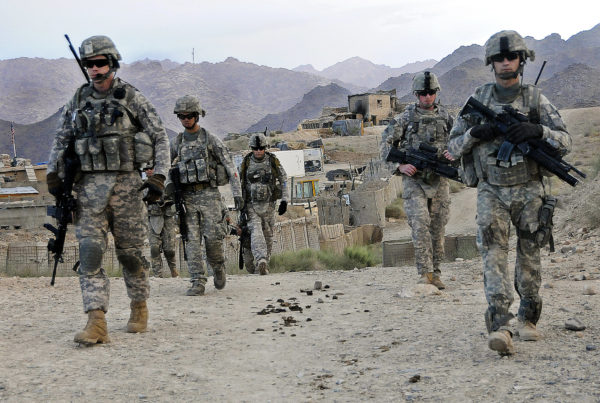Written by Ratina Ghosh (Originally published on February 10, 2016 on opencanada.org)
Violent extremism is typically fought with expensive and reactive policing. Meanwhile, educational means are proactive, though they get less attention and, when religion is involved, can be tricky.
One of the most pressing problems of our time is the fear of violent extremism and the destruction caused to innocent civilians all over the world. The contemporary concern is with religious extremism, although violent extremism has existed throughout history and has been used for political and other ideological purposes.
What do we mean by “violent religious extremism”? This is difficult to define because there is no consistency in the use of the term nor is there a common understanding as to who is an extremist: one person’s extremist is another person’s hero. Furthermore, determining the word “extreme” is a subjective exercise, although generally extremism is understood to be a rejection of other points of view, when one’s perspective is considered exclusive.
Violent extremism therefore is defined “as those activities and beliefs which are used to advocate, engage in, prepare, or otherwise support ideologically-motivated violence to further socio-economic and political objectives.” An essential component of this violence is that extreme positions are justified on moral grounds as part of a hierarchy of values. This can lead to radicalization, and on some occasions to terrorism.
Countering violent extremism (CVE) has become part of national and global policies since the dramatic attacks by terrorists in New York City in 2001. The attacks were a turning point in counter-terrorism policy, and Islamic extremism has become the target due to its scale and recruiting success among youth, although there have been extremist attacks by all religious groups in the years since 9/11.
Since violent extremism is thought to be a precondition of terrorism, attempts at countering Islamic extremist groups by governments have involved developing surveillance and policing strategies, which are expensive and reactive. Although education offers proactive measures, which are relatively inexpensive in countering the development of extremist views, very little attention has been paid to schools in counter-terrorism policies.
Paradoxically, education is a double-edged sword because it is used both in promoting and countering violent extremism. Extremist groups have used religious education very successfully to indoctrinate young minds (through a particular interpretation of their religious text). Soft power, through the use of narratives and ideas in both non-formal and formal educational programs, as well as media, has been used systematically to promote extremist ideologies.
Counter-terrorism policies, meanwhile, have not been able to effectively use hard power, consisting of coercive measures, to prevent the radicalization of youth in countries around the world and the flow of foreign fighters from joining ISIS.
Not only are the aggressive measures reactive in that they attempt to abort a planned terrorist act and do not attempt to prevent the development of violent extremist plans, but also the cost of fighting Islamist terrorism is estimated to be anywhere up to US$5 trillion. As a social institution, education – formal and non-formal – has the potential to use soft power to develop resilience in youth over the long period youth are required to attend school during childhood around the world. In addition, attempts must be made to counter the narratives of extremist ideology. By complementing hard power such as intelligence and surveillance measures, education has the potential to counter in a sustainable manner the development of extremist individuals who would use violence on innocent people.
From the point of view of education, the issue of religion is rather complex because it raises a variety of issues dealing with policy, process, practice and outcome as they relate to religion as a subject that may be taught in schools, as well as in mandatory school subjects (such as science education in which the theory of evolution may be contradictory to creationism). The impact is also on school culture in a variety of ways. The overall question is how can education develop resilience against violent behaviour to develop strong values of good critical citizenship? What kind of narratives can counter the lure of media messages and narratives that could mitigate conflicting viewpoints in societies?
“Multiple perspectives should be presented to students in order to avoid an ethnocentric interpretation of knowledge.”
Educational strategies aim to accomplish long-lasting objectives that only develop over time. Some of the root causes that can trigger an individual to turn to extremist ideologies − like alienation, marginalization, search for identity and lack of historical understanding of discrimination and social inequalities − require the long-term development of values and understanding.
The few studies that exist on education for CVE suggest critical thinking skills and media literacy so that students can make informed judgments to assess information and be able to recognize proponents of extremist messages. Through critical pedagogy, multiple perspectives should be presented to students in order to avoid an ethnocentric interpretation of knowledge. Because knowledge in critical pedagogy is seen as inherently political, students should be given spaces to have diverse ideas − even extreme ones − until such time that they are able to question and discuss them so that their experiences lead them to re-conceptualize extreme views. Education and dialogue can address the grievances and foreign policy concerns that might encourage individuals towards Islamic extremist actions. It is also important to educate children on how to use and understand electronic intelligence and cyber security.
A consistent challenge, however, is assessing the success of preventive measures.
Nevertheless, similar to inoculations against infectious diseases where it cannot be known how many people have been saved from having the disease, the attempt must be made in education to counter violent extremism. Since religion plays a very important role in people’s lives, in religiously diverse secular societies the trend is to focus on values and talk about religion objectively rather than on subjective terms of belief, in order to retain a neutral attitude towards a rich variety of beliefs and to develop respect for different belief systems. Values that are common among cultures and religions such as empathy, honesty, equality and belief in human dignity for example, are important to develop in children. An education that inculcates these values and respect for religious diversity rather than eradication of religion is likely to develop resilience as a necessary, if not sufficient, condition, if peace and security are to be achieved and maintained.








